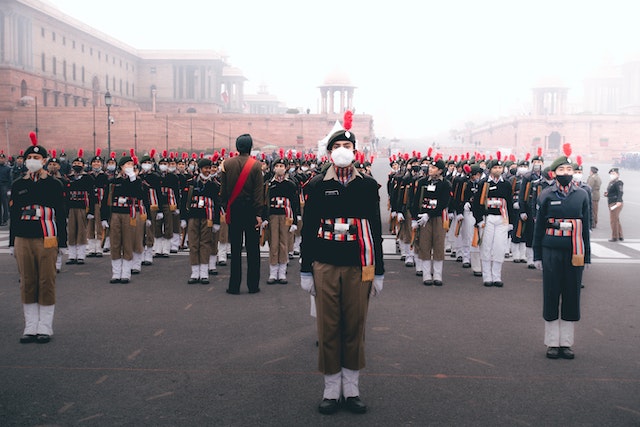Police officers play a critical role in ensuring the safety and security of communities. However, to become a law enforcement officer, they must first complete extensive training. There are essential training requirements that aspiring police officers must fulfill. These include:
Physical Fitness Tests
Physical fitness tests are a crucial component in police training, designed to prepare officers for the physically demanding nature of their job. These tests involve a series of exercises such as running, jumping, and weightlifting that help to assess an officer’s overall fitness level. The aim is to ensure that officers are able to perform their duties effectively, without putting themselves or others in danger.
It’s not enough to be able to handle a firearm or make quick decisions under pressure; officers must also be in top physical condition to be effective in their roles. By prioritizing physical fitness in police training, departments can help to ensure that their officers are equipped to handle any situation that comes their way.
Firearms Training
One particularly critical area is firearms training. In fact, mastering the use of firearms is what sets a police officer apart from other law enforcement officers. One piece of equipment that has grown in popularity is the 9mm AR pistol, a powerful and reliable firearm that is gaining traction in police departments across the country. With its compact size and high effectiveness, the 9mm AR pistol is the perfect tool for law enforcement officers looking for a firearm that they can easily carry and use in a variety of situations.
But it goes beyond simply carrying a firearm; officers must be trained in using it effectively and safely. This is why police training that includes firearms training is so crucial. When it comes to protecting and serving the community, it is imperative that police officers have the skills and confidence needed to use their firearms when necessary.
Defensive Tactics
To effectively protect and serve their communities, police officers must possess a multitude of skills and knowledge, including defensive tactics. These tactics are essential to an officer’s ability to safely apprehend and control a suspect, while also minimizing the risk of injury to both the suspect and the officer.
Proper defensive tactics training teaches officers how to use physical force in a controlled manner, how to assess a threat level, and how to de-escalate potentially dangerous situations. By arming officers with these critical skills, we can help ensure that law enforcement personnel are better equipped to protect and serve their communities, while also upholding the safety and well-being of everyone involved.
Emergency Vehicle Operations
Police training is an essential part of ensuring our law enforcement officials are equipped with the skills needed to protect and serve our communities. Emergency vehicle operations are a critical component of this training as officers must be able to safely and efficiently navigate through traffic and hazardous conditions when responding to emergencies. This training is rigorous and involves classroom and hands-on instruction to prepare officers for the challenges they may face on the road.
It’s crucial that officers receive this training to not only ensure their safety but also the safety of the citizens they are protecting. The importance of emergency vehicle operations training cannot be overstated, and it’s comforting to know that our law enforcement officials are well-prepared when it comes to responding to emergency situations.
Criminal Law and Investigation
Criminal law and investigation are two critical components of police training that prepare them for real-life scenarios where they need to respond decisively and in accordance with the law. Criminal law training gives them a deep understanding of the nuances of different crimes, their classifications, and the legal framework that governs their investigation and prosecution.
Investigation training hones their observation, inference, and analytical skills, preparing them to gather and analyze evidence, build cases, and apprehend offenders. With these tools in their arsenal, police officers can serve their communities with the utmost effectiveness and professionalism.
Crisis Intervention
Police training for crisis intervention is crucial for ensuring that law enforcement officers can effectively manage situations that involve individuals in distress. By equipping police officers with effective crisis intervention skills, they can better serve their community and prevent potential harm to those in need. During such training, officers learn how to recognize symptoms of mental illness, de-escalate dangerous situations, and connect individuals with appropriate resources for support.
Such skills can be life-saving in moments of crisis and can have a positive impact on the relationship between law enforcement and the community. Ultimately, crisis intervention training is an essential component of effective policing and helps officers to handle high-pressure situations with compassion and empathy.
Each of these requirements is crucial in preparing officers for the various challenges they may face in the line of duty. By meeting these training requirements, police officers are equipped with the necessary knowledge and skills to uphold the law and protect the public.

